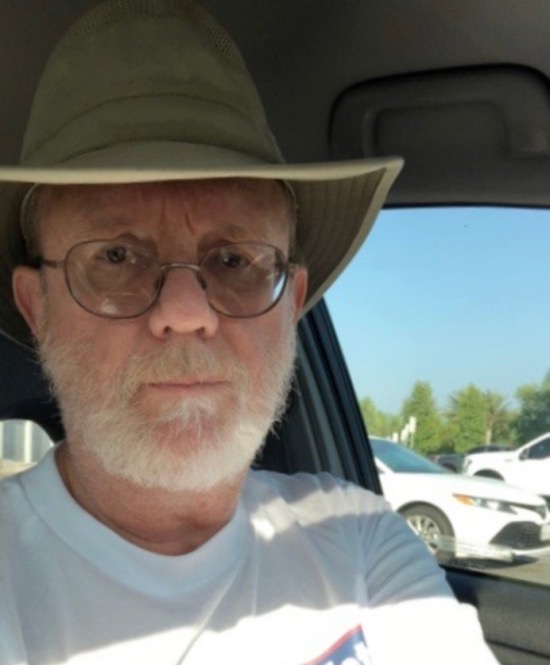
Thomas Fielder
The prevalence of people who lack a home and live on the streets of Orange County is nearly impossible to ignore and now consistently ranks as the number one concern of its residents. This is a story about some of the individuals and organizations who are volunteering their time and efforts to help unhoused folks and pressure the county’s leaders to ensure an adequate supply of affordable housing. I have centered the story around food distribution because it is one of the most effective forms of outreach and engagement.
When your Ph.D. research involves human subjects, it is inevitably exploitative and extractive to some degree. And when your research subjects are living without a fixed abode, you may find it impossible to ignore their myriad needs. This was the situation in which Deyanira Nevárez Martínez found herself in 2019. Her thesis research is centered around the interactions of “street-level bureaucrats” with unhoused people (SLBs include police, social workers, code enforcers, medical technicians and nurses, park rangers, etc.), and, more generally, the role of the state in “informal” housing, ranging from folks sleeping in tents on sidewalks, living in cars, and couch-surfing, to colonias on the US-Mexico border. Although Deya was able to pay her subjects $25 each, she wanted to give back more.
As a Ph.D. candidate in Urban Planning and Public Policy at UC-Irvine, Deya was already plugged into the network of progressive activists in Orange County. In late 2018, she encountered David Duran and Pat Davis at an OC Board of Supervisors meeting. Pat and David’s roles in OC activism deserve their own stories, including helping to spearhead the volunteer group, Housing is a Human Right Orange County. Learning of Deya’s interest in south OC, they connected her with Maura Mikulec, social worker, founder of the South County Homeless Task Force and force of nature in her own right. She introduced Deya to the folks Maura was already assisting on the streets of Capistrano Beach, San Clemente, and Dana Point, and helped Deya develop her outreach and engagement skills. I have not had the pleasure of seeing Maura and Deya in action among folks on the street, but I am certain it would be an inspirational experience.
Fast forward to the spring of 2020: Brooke Weitzman, Directing Attorney and Co-Founder of the Elder Law & Disability Rights Center in Santa Ana, needed help with the pile of lunches that Patrick Phanthanusorn kept dropping off at her office for distribution to unhoused folks. Brooke is famous in the community of OC activists pursuing solutions to homelessness, not only for some significant victories in court, but also for her activism out of court and on the streets. If she sees a situation that requires more time and resources than she has, she can usually find someone willing to donate one or both.
Patrick runs the non-profit organization, Transforming Trips. Normally, his org would have been arranging trips to developing nations for teenagers to carry out service projects. But with the onset of the pandemic it became clear the org would have to focus its energies locally, and so he set the goal of assembling and delivering 10,000 lunches to people living on the streets. Following strict instructions regarding ingredients, food handling and COVID protocols, he had dozens of volunteers (including the entire Irvine High School football team at one point) assembling sandwiches (mostly peanut butter and jelly) and lunch bags. The assembled bags were then delivered to a few central locations, such as Brooke’s office, for pickup by the people who would distribute them on the streets. Maura distributed these lunches on a few occasions at first, but she was beginning to focus her efforts on homelessness in other directions. Having been introduced to Brooke by Maura, it was perhaps inevitable that Deya would inherit the role of primary delivery/pickup point for the Transforming Trips lunches.
The food distribution operation Patrick and Deya were running depended on individual contributions from numerous volunteers, none more important than those (including Deya and Maura) who were actually handing the lunches to folks on the street. Among Deya’s most reliable distributors, averaging 50 lunches per week apiece, were Ben Davis, another of Brooke Weitzman’s recruits, and Michael Sean Wright, who took the lunches on his Wound Walk rounds, often accompanied by Ben. (If you don’t know what Wound Walk is, please click on the link NOW!).
I met Deya when she began attending meetings of the volunteer group known as Housing is a Human Right Orange County (HHROC) in early 2019. My first encounter with her, outside of meetings, was when she delivered lunches and clothing to Rebecca Kovacs-Stein and myself for distribution to folks at several large sidewalk encampments in Stanton, in the early days of the COVID lockdown. Eventually, most of the folks in those encampments were forced to choose between (a) Project Roomkey hotel rooms with draconian quarantine restrictions, (b) the jail-like conditions and risk of COVID-19 in shelters, or (c) finding somewhere else on the street to pitch their tent. Rebecca helped some of them get into apartments or group homes, Michael and others helped heal their wounds, and I (mostly) supplied cold drinks and handed out food.
Obtaining enough food and drinks for several hundred lunches per week can be expensive for a bunch of volunteers. Thanks in large part to the efforts of the Orange County Poverty Alleviation Coalition (OCPAC) and the People’s Homeless Task Force Orange County (PHTFOC), many of the ingredients could be acquired at the Orange County Food Bank (OCFB), where most non-perishable food is available for 6 cents per pound and most perishable food is free. (Non-profit agencies must register with the food bank and designate up to 6 people to act as buyers.)
I have been “shopping” at the OCFB for OCPAC since 2018 and for PHTFOC since July of 2020. For me, one of the rewards of this activity is the endless variety of things, both edible and not, that one encounters (firewood, anyone?). I always tell people that you never know what you will find there. However, this also means that you never know what won’t be there. The pandemic had significant effects on the availability of certain categories of food – some positive and some negative. Restaurant lockdowns resulted in a glut of fresh eggs, normally a rare find, while the usually reliable supply of street-friendly food, snacks and drinks dried up at times. Federal COVID-relief funding has allowed the OCFB to offer 25-lb food packages for free, and at times both OCPAC and PHTFOC have obtained several pallets of these boxes for distribution to food-insecure households.
In 2020 alone, OCPAC and PHTFOC together moved more than 57,000 pounds of food from the OCFB to the streets and neighborhoods of Orange County.
Now that Transforming Trips has achieved its goal of serving 10,000 lunches, and pandemic restrictions are being lifted, Patrick Phanthanusorn’s org is returning to its original mission. Deyanira Nevárez Martínez will soon be leaving Orange County for a faculty position at Michigan State University. HHROC meetings have acquired some new regulars, while older volunteers are redefining their roles. But more people than ever are lacking a fixed abode in Orange County, and the long-term economic impact of the pandemic will surely swell their numbers. Thus, we continue to advocate for the most efficient solution, which is to ensure an adequate supply of housing that is affordable and available to people at all income levels and to supply the necessary services that some people require to stay housed.
Credit: https://woundwalk.org/voice-of-oc-fielder-behind-the-scenes-volunteers-helping-ocs-unhoused/

